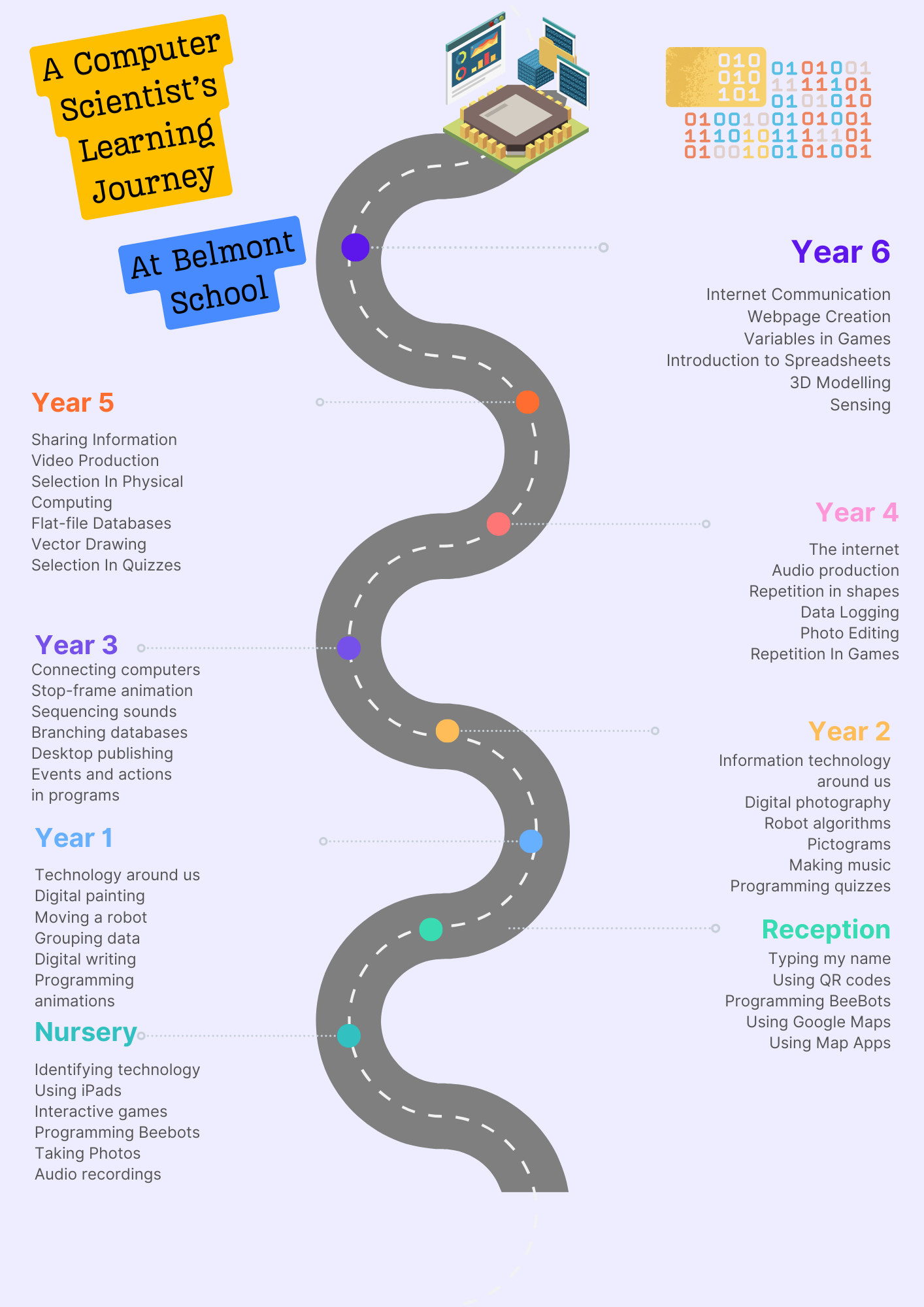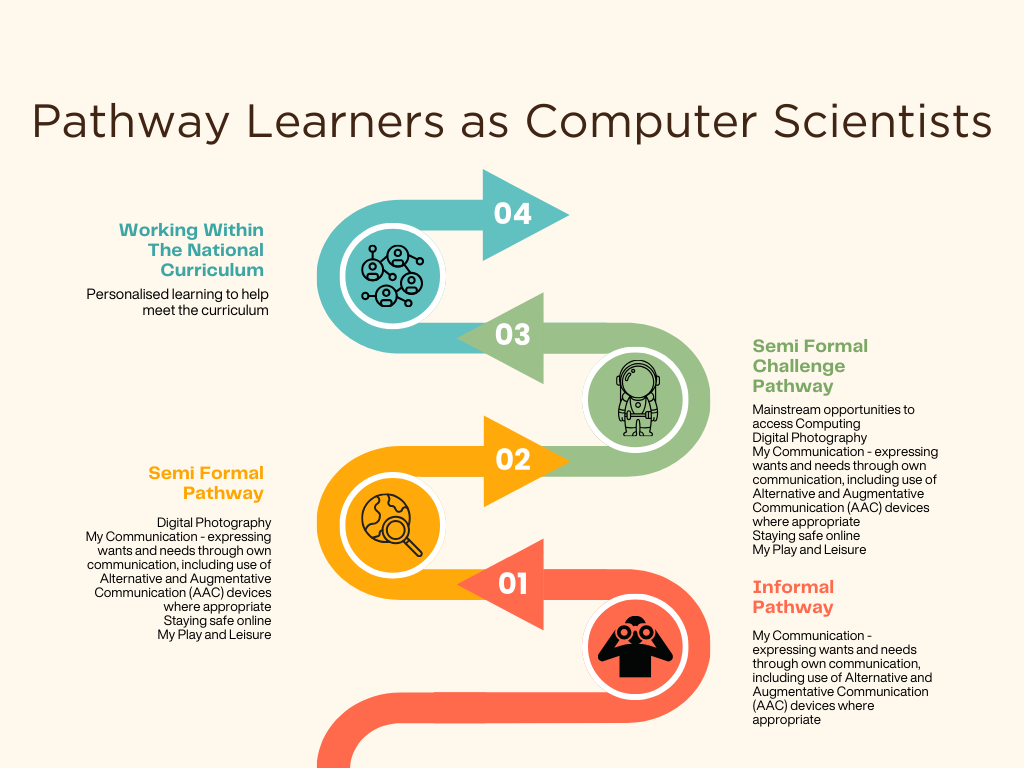Computing at Belmont
Intent:
Our Computing curriculum is designed to foster children's curiosity and fascination with the digital world, as well as their confidence in embracing the changes that occur in this fast-paced, ever-changing environment. Computing plays an important role in Belmont School, so we have designed our Computing curriculum with the intent that:
- Pupils will be able to think about Computing as an evolving entity, how it shapes our present and contributes towards society.
- Provide each and every pupil with a broad and balanced Computing curriculum.
- Teaches pupils a skills-based curriculum that promotes individuality and creativity.
- Creates a curriculum, which also addresses those key issues associated with pupil wellbeing such as self-confidence and self-esteem.
- Encourages staff to try and embed computing across the whole curriculum to make learning creative and accessible.
Implementation:
As a school and in line with the National Curriculum’s expectations, we aim to ensure that all pupils have the knowledge and skills to:
- Integrate Computing into all areas of the curriculum.
- Become proficient in using Information Technology, Computer Science and Digital Literacy.
- Evaluate and analyse learning using technical vocabulary.
- Understand and identify how technology is constantly evolving.
- Recognise the important roles Computing plays in social media, safeguarding, health, wellbeing and lifestyles.
- Become responsible and safe users of computing technology.
The Computing curriculum enables pupils to develop a range of skills. This is delivered using a range of technology such as online learning tools, iPads, computers, sound and visual recorders and classroom-based technology. The skills that are developed in Computing can be transferred across the curriculum and support learning in other areas.
Teachers use specific INSET days and after school CPD sessions in addition to their PPA, to plan their curriculum. As part of this planning process, teachers plan:
- A cycle of lessons for each computing subject, which carefully plans for progression and depth concentrating on the specific skills suited to the age group.
- Challenge questions for pupils to apply their learning in a philosophical/open manner.
- Trips and visiting experts who will enhance the learning experience.
- Appropriate curriculum themed home learning tasks which children complete with adults at home.
Impact:
By the time pupils leave our school they will:
- Have a secure understanding of the positive applications and specific risks associated with a broad range of digital technology.
- Confidently discuss, reflect the impact Computing has on their learning development, safety and well-being.
- Understand how to work safely and responsibly online, how to recognise and report security issues and concerns.
- Be able to evaluate real world issues by using personal experiences and real-life examples.
- Understand how to use algorithms to solve problems.
SLT and Subject Leaders monitor the impact of our Computing provision through completing regular monitoring, which includes listening to the voice of our pupils. In addition, the progress of our Computing curriculum is demonstrated through the children's outcomes. Evidence is gathered through reviewing pupil’s knowledge and skills digitally through online platforms and tools like MS Teams, Purple Mash, Scratch, Teach Computing and observing learning regularly.


